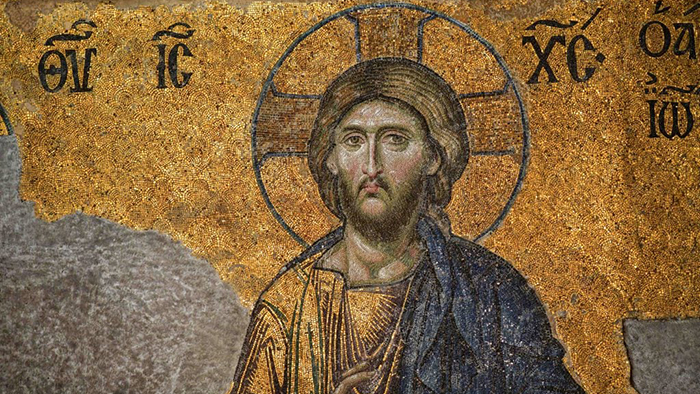
In the first episode of the “Catholicism” series, then Fr. Robert Barron, in a deliberate way, shakes out of us our tendency to ‘domesticate’ the figure of Jesus of Nazareth, the Christ. Instead, he reminds us that Jesus was a deeply disconcerting, subversive figure. The gospel writers were clear that Jesus came as a warrior king who came to set his people free. Unlike other spiritual leaders, who do not point to themselves, Jesus of Nazareth keeps speaking and acting as if he is God. Either Jesus is who he says he is (in which case we are obliged to give our whole lives to him), or he is a madman (in which case we should be against him). What does not remain, as C.S. Lewis saw so clearly, is the bland middle position that, though he isn’t divine, he is a good, kind, and wise ethical teacher. If he isn’t who he says he is, then he isn’t admirable at all. The Buddha could claim that he had found a way that he wanted to share with his followers, but Jesus said, “I am the way.” Mohammed could say that, through him, the final divine truth had been communicated to the world, but Jesus said, “I am the truth.” Confucius could maintain that he had discovered a new and uplifting form of life, but Jesus said, “I am the life.” No other founder forces that choice. Christ compels a choice: you either believe he is God’s ‘Anointed One’ or you do not. As Jesus says, you’re either with him or you’re against him. There’s no room for a middle ground. This is crazy stuff when you take the time to consider the radicality of the person of Christ and the incredulous truth that God became man and dwelt among us. We are either with Jesus or we are against him.
